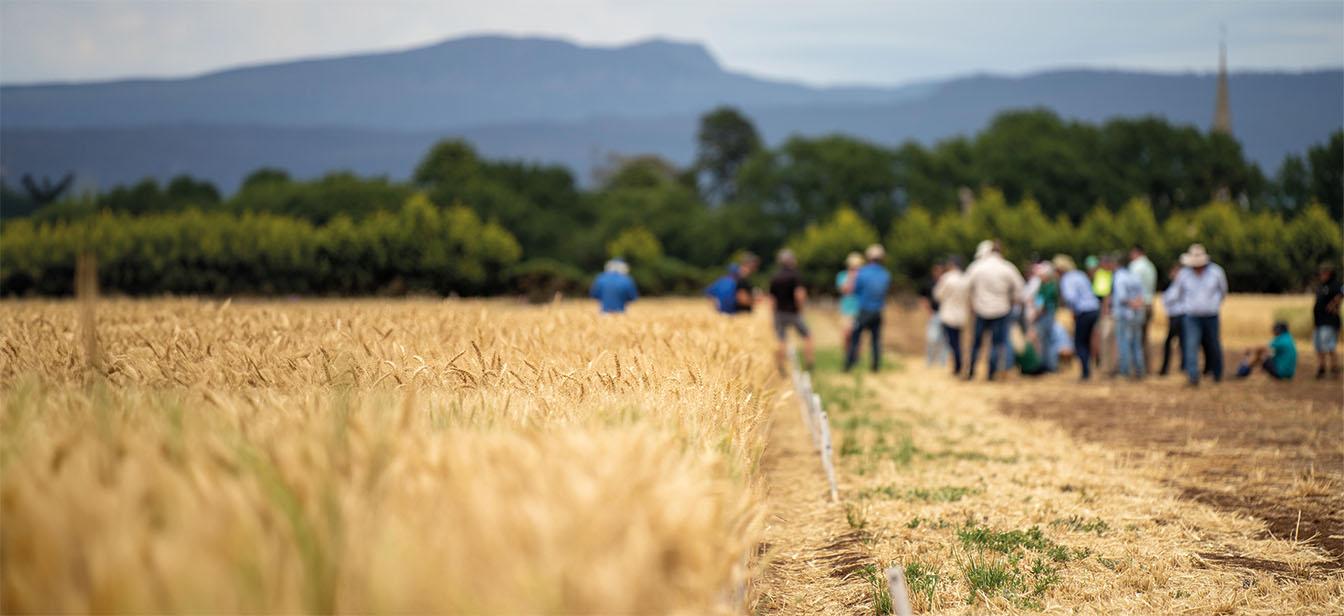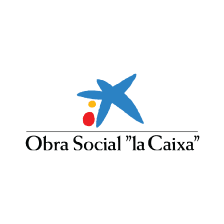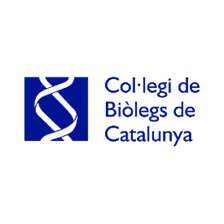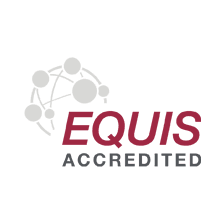
The Lifelong learning master's degree in Scientific, Medical and Environmental Communication, a master for international students, is a pioneering master in Spain, with more than 30 years training scientific communicators. You will learn in a practical way and in direct contact with recognized professionals in scientific, medical and environmental communication who are leaders in the sector.
Today more than ever the importance and impact of scientific communication on society have been evidenced. The way in which new knowledge is disseminated and the agents responsible for such communication are decisive in shaping public opinions and attitudes regarding science and technology.
Throughout the Lifelong learning master's degree in Scientific, Medical and Environmental Communication you will learn about the history of science and technology; you will analyse the main sources of scientific information and their forms of transmission; analyse the relationships between the professional world, technology industries and society; see how discoveries impact on people; and learn about ethical problems associated with the field of communication.
You will also learn about institutional scientific communication and how to develop museographic projects. You will acquire practical knowledge to create scientific communication products for different platforms, in various languages, and with new narratives. Additionally, you will have the opportunity to reflect on and experiment with the different social aspects of science (public engagement), which are so essential nowadays for scientific communication and dissemination plans.
You will learn from these and other experts and professionals from different modalities and institutions related to science communication:
- Gema Revuelta, director and professor of the Lifelong learning master's degree as well as director of the Center for the Study of Science, Communication and Society at the Universitat Pompeu Fabra (CCS-UPF) and vice president of the Spanish Association of Science Communication (AEC2);
- Vladimir de Semir, creator of the Science and Technology supplement of La Vanguardia;
- Núria Jar, Prismas award for the best radio work in 2020;
- Pedro García Demestres, museographer and expert in science communication;
- Maria Josep Picó, researcher of the ITACA group and the Living Lab Planeta Debug;
- Bienvenido León, professor of Science Journalism and Television Production at the University of Navarra.
You will be trained with optimal knowledge for a profession with wide and relevant professional opportunities in the fields of specialization in the press and scientific dissemination, institutional communication and scientific museology.
Thanks to the collaboration of Obra Social "La Caixa", you will be able to participate in the Gutenberg Campus, in which more than 300 communicators, scientists, experts and researchers in scientific culture from all over Spain and Europe participate each year.
Collaborators:

Why choose this program
Position your professional career
The program offers great interdisciplinarity, a balance between theory and practice (with visits to museums, recording studios, etc.) and a unique group dynamic. In addition, through the preparation of the thesis you will create a project that integrates the knowledge acquired and that you can use as a cover letter to enter the world of dissemination.
Participate in a large range of internships
You will be able to carry out professional internships in institutions such as the National Centre for Oncological Research, the Institute of Evolutionary Biology CSIC-UPF, the Institute for Biomedical Research (IRB), the Alba Synchrotron, the Catalan Association for Scientific Communication (ACCC), the Centreo for Genomic Regulation Foundation, the LaCaixa Foundation, La Marató of TV3, among others.
Increase your network of contacts
You will be part of the Alumni network, made up of professionals from recognized companies and institutions in the sector (media, communication, departments of research centres, hospitals and universities, science museums, organizations dedicated to scientific dissemination, etc.) from different parts of the world.
Participate in one of the leading Master's in the sector
26 face-to-face courses and 8 online courses make it one of the benchmark programs in the scientific, medical and environmental communication sector. Its reputation has brought together participants from more than 20 different countries.
Learn from experts in each field
The teaching staff of the Master in Scientific, Medical and Environmental Communication is made up of professionals and experts from each of the learning areas.
Who is it for?
The Master in Scientific, Medical and Environmental Communication is aimed at university graduates who wish to become professionals in scientific communication, a field with notable applications and professional opportunities. The profile of the students is heterogeneous: in the classroom science profiles and communication profiles are mixed, which creates a fluid class dynamic, allowing two-way learning.
Accreditations
UPF Barcelona School of Management has EQUIS accreditation, the most prestigious institutional recognition for business schools globally, and places itself among the top business schools in the world.
The Master in Scientific, Medical and Environmental Communication has received the Prisma Special Jury Award, in recognition of its 30-year history of training high-level scientific communicators. This award highlights its impact and quality in the field of science communication.
Curriculum
The Lifelong learning master's degree in Scientific, Medical and Environmental Communication is structured along 14 core subjects organized into 7 topics and focused on three lines of training: science, medicine and the environment.
The raw material with which the scientific communication professional works is science. But what are we talking about when we use the word "science" today? Is it the same to talk about science as it is to talk about research? What relationships are established between science and society? What is scientific excellence, how is it measured and what should it be?
Research projects increasingly include a plan of outreach activities that is required when submitting to public calls. For this reason, in this topic we have integrated into a single term, that of public engagement activities of different formats and with a different level of citizen participation.
Most of the classes are based on practical learning, based on the experimentation of the students with different formats and on solving real problems.
Scientific journalism and popularization of science are close concepts, although many communicators prefer to highlight the differences between them. In this subject, the student will deepen their knowledge of both professional environments, from their origins and historical evolution to the current situation and future trends.
- Scientific news and the sources of information.
- The dissemination of science through books, cinema, theatre and television.
- Science fiction and popular science.
- Different models of science journalism in the media: daily press, specialized sections and supplements, audiovisuals (television, news, specialized programmes and documentaries), informative scientific magazines, scientific news agencies, etc.
In addition, through different practical workshops you will discover various tools and formats for communication and scientific dissemination.
The public communication of issues that have to do with health can become key to decision-making, both for citizens and for health professionals themselves and people with political responsibility. The first objective of this topic is to review some of the main health problems and to understand what is being done to prevent, control or treat them.
The student will have the opportunity to delve into the main research tools used in this area, such as the clinical trial for the study of drugs or the main tools used in epidemiology and public health for the study of diseases.
In the medical journalism workshop, you will work with some of the characteristic concepts of this field, such as the use of statistics and numerical information, and information on drugs in the experimental phase.
Environmental journalism arises in parallel to the development of environmental sciences and, in general, awareness from science and from certain social movements, due to the consequences of human activity on the environment.
In the theoretical part of this topic, the development of environmental journalism will be analysed from different points of view, mainly: a) from philosophy, literature and science; and b) from political, economic and social reporting.
The environmental journalism workshop is conceived as a deepening of writing and argumentation tasks carried out previously in this Master.
The basic objective is to practice and expand knowledge in the field of journalism and environmental communication, as well as to promote the ability to analyse the content offered by the media.
The objective of this topic is for students to get to know and practice with the different formats and tools through which science can be communicated, from audiovisual communication. During this topic, the student must develop a video under direct monitoring and personalized tutoring from the teaching staff.
The objective of this topic is for students to get to know and practice with the different formats and tools through which science can be communicated, from the multiple digital communication channels.
During this topic, the student must develop a digital content plan, and some infographics under direct monitoring and personalized tutoring from the teaching staff.
The objective of this topic is for students to get to know and practice with the different formats and tools through which science can be communicated on the radio. During this topic, the student must develop a radio programme under direct monitoring and personalized tutoring from the teaching staff.
The objective of this topic is for students to get to know and practice with the different formats and tools through which science can be communicated, from the museology point of view. During this topic, the student must develop a small scientific exhibition under direct monitoring and personalized tutoring from the teaching staff.
The development of the project within the framework of the Master in Scientific, Medical and Environmental Communication involves the application of knowledge, skills, tools and techniques that are acquired in the program through the development of a written product. The final resulting project must allow the incorporation of the contents of the subjects that are the object of the program, as well as other knowledge and the experience and judgment of the participants.
Thus, the objective of the project is for the participant to consistently integrate the knowledge acquired through the program in such a way as to put into practice their diagnostic and problem-solving skills.
5 possible project typologies are proposed: Business and/or competitive initiative; communicative or informative product; communication plan; analysis and exploration project; and projects with special characteristics. There are no specific restrictions, although participants must find topics of sufficient interest, of a certain entity and of relevance for them to be accepted by the Program Management.
The project is developed individually during the program and the participant will have the support of a mentor assigned by the Program Management.
Note on the Curriculum
Complementary activities
The Master in Scientific, Medical and Environmental Communication also includes the possibility of participating in practical activities and activities for personal and professional growth such as:
- Non-teaching Tuesdays will be reserved for optional complementary activities concerning Scientific Culture. Each student must participate in at least two of the recommended activities.
- UPF-BSM Inside: is a group of interdisciplinary subjects (applied data, communication, creativity, innovation and project management, sustainability and leadership among others) that, if you take this program, you can access at no additional cost. They are 100% online and you can take them throughout the academic year at your own pace, as they have been designed as self-study subjects.
Qualification obtained
Once you have passed the program, you will receive the following electronic degree certification (eTítulo©): Lifelong learning master's degree in Scientific, Medical and Environmental Communication, awarded by the Pompeu Fabra University. The eTítulo© will be issued in Catalan, Spanish and English.
The electronic degree certification (eTítulo© ) is an authentic digital degree, issued in pdf format and electronically signed, with the same legal validity as if it were in paper format.
Faculty
The teaching staff of the Master in Scientific, Medical and Environmental Communication is made up of professionals and experts from each of the learning areas.
Academic directors
Deputy Directors
Faculty
Collaborating faculty
- Gema Revuelta
Director of the Master in Scientific, Medical and Environmental Communication. Coordinator and Professor of the subjects: The Science and Technology System, Medical Journalism and Science and Citizen Participation. Director of the Centre for the Science, Communication and Society Studies Centre of the Universitat Pompeu Fabra (CCS-UPF).
- Laura Carrau
Coordinator and teacher of Audiovisual Communication and Video Workshop. Director of Lau Cau Productions. She has worked for National Geographic and Film in Washington DC, in TVE as a scriptwriter and scientific consultant. - Marc de Semir
Coordinator and teacher of the Institutional Communication Workshop. Director of Corporate Communications at the Bertelsmann Foundation. - Vladimir de Semir
Coordinator and Professor of Science Journalism and Science Popularisation. President of the Advisory Board and Social Council of the CCS-UPF. CSIC Prize for Science Journalism. - Pedro García Demestres
Coordinator and teacher of the Scientific Museography Workshop. Director of the R+D Explainers Group, with more than 400 projects of exhibitions and science communication museums. - Karla Islas Pieck
Coordinator and teacher of the Science Journalism Workshop. Responsible for press and content at the Research Institute of the Hospital de la Santa Creu i Sant Pau - IIB Sant Pau. - Núria Jar
Coordinator and teacher of the Oral Communication and Radio Workshop. Freelance journalist. She has collaborated with La Vanguardia, El País, Scientific American en español, Muy Interesante and TV3. She is part of the Hypatia I team. - Carolina Llorente
Coordinator and Professor of Digital Narratives and Master's Thesis, and Professor of Science and Citizen Participation. Coordinator of CCS-UPF. - Maria Josep Picó
Coordinator and Professor of Environmental Journalism. Associate professor at the UJI, researcher in the ITACA group and LivingLab Planeta.Debug. 2009 National Journalism Prize.
- Javier Esteban Armentia
Director of the Pamplona Planetarium. - Josep Maria Borrás
Epidemiologist doctor. Professor of epidemiology and public health at the University of Barcelona. Director of the Cancer Plan of Catalonia and scientific coordinator of the Cancer Strategy of the National Health System. - Fèlix Bosch
Former director of the Dr. Antoni Esteve Foundation (2009-2023) and associate professor at the Faculty of Medicine, University of Vic-Central University of Catalonia (2020-). Graduated (1986) and PhD in Medicine (1992) from the Autonomous University of Barcelona with postgraduate training in Pharmaceutical Industry Medicine (UAB, 1988) and Pharmacology (University of Barcelona, 1989). He has carried out various activities in teaching and research from the Department of Pharmacology of the UAB (1987-1993) and subsequently from the Department of Medicine and Life Sciences, Pompeu Fabra University (2002-2019), in addition to working in different institutions and companies linked to pharmaceutical research. - Daniel Cassany
Professor of Discourse Analysis at the Universitat Pompeu Fabra. He has published more than 12 books on written communication, applied linguistics and language teaching in Catalan, Spanish and Portuguese.. - Helena González Burón
PhD in Biomedicine, communicator, scientific educator, and actress. Co-founder of Big Van Science, a group of scientists passionate about communication through performing arts and humor, where she coordinates and implements scientific education projects in Europe and Latin America. Author of several science outreach books, collaborator on radio and television (Órbita Laika, Masterpieces and We Learn at Clan). - Roderic Guigó
Has close to 40 years of experience in research in computational biology. He has coordinated the Bioinformatics and Genomics program at the Center for Genomic Regulation (CRG) since 2005, and he is a Bioinformatics Professor at University Pompeu Fabra (UPF) in Barcelona. He is part of Large Scale Genomics Leadership for the GA4GH, and co-chair of the Ethics Committee for the Human Cell Atlas. He promoted and helped to launch the Catalan Initiative for the Earth Biogenome project, and he is a member of its steering committee. He has an h-index of 115 and over 125,000 citations. - Nuria Izquierdo Useros
Leads a research group focused on emerging pathogens and microbial threats at IrsiCaixa. Graduated in Biology from the Autonomous University of Madrid and PhD in Immunology from the Autonomous University of Barcelona. Later, she completed postdoctoral studies at Heidelberg University, Germany, under the supervision of Prof. Dr. Hans-Georg Kräusslich, where she contributed to the identification of Siglec-1 as a receptor in dendritic cells involved in the capture of various globally impactful viruses such as HIV and Ebola. This line of research has led to the development of new antiviral drugs, including several monoclonal antibodies. - Bienvenido León
Professor of Scientific Communication at the University of Navarre. Director, scriptwriter and producer of documentary films. - Heber Longás (infographics)
Infographics artist in science and health at Fundamentium. Professor of infographics at the online school of scientific infographics of the same company. - Oriol Marimón Garrido
PhD in Organic Chemistry, scientific communicator, and Director of Big Van Science. Designs, coordinates, and implements educational projects at national and European levels that combine science with performing and audiovisual arts. Scriptwriter and actor in theatrical shows (stand-up, clown, and improv) on scientific topics. Author of several books on scientific communication for young people and collaborator on radio and television. - Meritxell Martell
Environmental consultant MERIENCE Strategic Thinking. - Javier Martín Vide
Professor at the University of Barcelona, specialist in climatology, member of the Royal Academy of Sciences and Arts of Barcelona and corresponding member of the Académie Royale des Sciences d'Outre-Mer (Belgium) and the Academia Malagueña de Ciencias. - Luis Santamaría
Tenured Researcher en Spatial Ecology Group, Department of Wetland Ecology, Doñana Biological Station (EBD-CSIC). - Adelaida Sarukhan
PhD in Immunology (Paris VI University), with over 20 years of research experience. In 2014, she pursued a Master in Scientific Communication at UPF, Barcelona, and since then has been working in the communication team at the Barcelona Institute for Global Health (ISGlobal), where her main tasks include translating scientific results into language adapted for non-specialist audiences, directing communication activities in European projects, and reviewing/promoting current scientific issues on emerging infectious diseases such as Ebola, Zika, and COVID-19. - Andreu Segura
Member of the Bioethics Committee of Catalonia and the Public Health Advisory Council of Catalonia. Professor of the Master's in Public Health at UPF. - David Valentín Ruiz
Ph.D. Industrial Engineer and Serra Húnter Professor in the Department of Fluid Mechanics at the Universitat Politècnica de Catalunya (UPC). - Eli Vivas (data visualization)
Co-founder of StoryData. Professor of Infographics at Pompeu Fabra University (UPF), also a teacher of Data Journalism, Fact Checking, and Digital Content Management at Ramon Llull University and of the Master’s in Information Design and Data Visualization at Elisava.
Methodology
Through a practical focus and an applied methodology, the program offers participants the possibility to learn and put into practice all the necessary tools to develop professionally in the field of medical, scientific and environmental communication.
Continuous assessment
You will have a qualitative returned correction, by the teacher of the subject.
Practical learning
You will learn the topics of the course through practical workshops and first-person experiences.
Final work adapted to your needs
You can choose a thesis according to your interests: Business or competitive initiative; a communicative or informative product; a communication plan or analysis; and exploration project on a sector or on the themes of the master's degree.
Evaluation
All the subjects of the master's degree will be evaluated continuously. The evaluation will consist of the correction of the submissions (individual or group), the multiple answer exams and participation in the classroom. This type of evaluation ensures an equitable distribution of effort and a progressive acquisition of knowledge.
Students will not receive quantitative grades as a mark, but will be informed whether or not they have passed each of the tests and, in most of these, they will also be offered an individualized and formative correction.
In the multiple choice exams, each student will have access to their results and will know, anonymously, the result of the group.
Some of the tests will be evaluated not only by the corresponding teaching staff but also by judges made up of professionals from the sector being analysed. The individual master's project will receive a quantitative assessment as described in the Project Guide that students will receive at the beginning of the course.
The continuous evaluation of the subjects and the compulsory minimum attendance of 80% of the classes require a high level of involvement of the students. In the event that a participant cannot attend any of the sessions, they must contact the operational coordinator to justify their absence.
Tools
The On-Campus&Live methodology allows you to follow the program in person and also remotely.
In this modality, two stable subgroups are opened that will coexist throughout the course: one face-to-face and the other with 100% remote students. The remote students (a maximum of 15 places per course) will follow the program in a synchronous way with the face-to-face students. That is, they will share the same school calendar and schedule as the face-to-face students.
Project-oriented learning and the combination of lectures and active methodologies such as case studies, flipped learning, solving real problems, and professional simulations allow the student to connect theory and practice, acquire advanced skills, and achieve learning which is transferable to the job. The face-to-face modality is enriched with elements of online programs (virtual learning environment, multimedia resources, among others) so that the learning experience of the two subgroups is equally satisfactory.
You will have:
- Master's or postgraduate work to learn by doing
- A personal mentor to monitor your Master's Final Project or Postgraduate Final Project
- Digital resources to achieve transversal skills
- Interdisciplinary activities and workshops
- Digital resources and audiovisual blocks for online learning
- Active methodologies for transferable learning
Professional Future
The teaching during the master, which was pioneering in its characteristics when it was born 27 years ago, has always been aimed at professional training in all areas of scientific communication: journalism, corporate communication, and museology.
Each course adapts and updates the program according to the evolution experienced by these sectors, in parallel to that of the sciences themselves. The best data is precisely the job opportunities that the participants have had during all these years, adapting in parallel to the evolution of the sector.

Student profile
Every year the program brings together a group of participants of which approximately 70% are scientists (in all its facets). The remaining 30% come mainly from the world of social sciences (journalists, communicators, marketers, sociologists, linguists, and philosophers).
As to the origin of the participants, the majority are from Spain, Latin America and Europe.
Average age
International students
Previous studies in Biology
Previous studies in Journalism
Career opportunities
The internships of the program are not compulsory, but extracurricular. The period for their implementation is between the program start date and September 15 of the following year.
At the end of the program you will be able to enjoy the opportunity of belonging to its network of former students, among which are professionals with positions in recognized companies and institutions in the sector such as Colciencias, Redes, Wisconsin IceCube Particle Astrophysics, Diario Médico, Novartis, Biblioteca del National Congress of Chile or the National Geographic, PRBB-UPF, etc.
- Director of communication
Directs and manages communication departments in research centres, hospitals, laboratories, science museums, universities, and technological or environmental companies.
- Journalist specialized in science, medicine, or the environment
Researches and/or creates content in written, audiovisual, and digital media. Both in generalist communication media, as in magazines, audiovisual programmes, or digital media specialized in science, medicine, or the environment.
- Scientific dissemination event manager
Plans and coordinates scientific outreach events for museums, universities, and technology or environmental companies. This is the contact person for the media. Creates and writes informative and promotional material, dossiers, and press releases.
- Curator / Curator of Scientific Exhibitions
Organizes and manages scientific museum exhibitions. Prepares the scientific discourse for the exhibition. Coordinates, writes and compiles catalogues and information brochures, texts that accompany the exhibits, dossiers and press releases, promotional materials, and grant applications.
- Head of communication for research projects
Creates, directs, and executes the communication plan for research projects in laboratories, hospitals, research centres, science museums, universities, and technology or environmental companies.
- Community Manager
Generates digital content and manages the Social Networks and blogs of universities, science museums, technology or environmental companies, research centres, hospitals, or laboratories.
- Scientific, medical, or environmental writer
Writes articles, corporate and project dossiers, blog posts, etc. in research centres, hospitals, museums, universities, and technology or environmental companies.
- Scientific, medical, or environmental publicist
Manages and communicates scientific, medical or environmental knowledge for research centres, hospitals, museums, universities, and technological or environmental companies. You will be the interlocutor for the media, audiences, the public, educational centres, and social groups.
- Scientific radio or podcast programme coordinator
Coordinates radio programmes and interviews experts from the fields of science, medicine, or the environment. Produces popular scientific podcasts.

